

M.Tech - Environmental Engineering program 2-year postgraduate engineering program that focuses on cutting-edge research opportunities, and commitment to sustainable practices prepare students to design solutions that protect our planet. Join us to explore a dynamic field where your passion for the environment and engineering prowess can drive positive change and shape a sustainable tomorrow. The M.Tech Environmental Engineering programme with its state-of-the-art facilities and experienced faculty, fosters a vibrant learning environment that prepares students for a variety of career options. They can work with consulting firms, government agencies, research organisations, and specialised contractors. Graduates of this programme emerge as leaders capable of contributing to environmental protection efforts and sustainable development initiatives, equipped with the skills to address pressing global challenges effectively.
TEACHING PEDAGOGY – M.Tech in Civil Engineering
Creating an Adaptable Learning EnvironmentWith rapid advancements in construction technologies and digital infrastructure, the department cultivates an evolving academic environment. Tools like BIM, AutoCAD, and GIS are actively integrated to prepare students for real-world problem-solving with adaptability and technical precision.
Learning Through Manifold ChannelsThe curriculum includes Project-Based Structural Simulations, Industry Interactive Sessions, On-Site Soil and Material Testing, and Collaborative Design Studios. These versatile methods help students bridge theoretical knowledge with practical field-based understanding.
Learning Through Visual and Audio Environment3D modeling, drone-based site documentation, digital walk-throughs, and animated construction processes are routinely incorporated. These methods boost students’ spatial cognition and enhance visualization of complex structures.
Teaching Through Assessment and Peer ReviewOngoing assessments through design submissions, lab reports, field observations, and project evaluations are key. Peer reviews of structural solutions and group critiques encourage collaborative improvement and critical thinking.
Interactive Methods and Program-Level StrategiesVirtual mixing labs, environmental impact simulations, and disaster-resistant structure modeling enhance interactive learning. The department emphasizes emerging areas like Smart Infrastructure, Transportation Modelling, and Green Building Technology—supporting civil-tech research and entrepreneurship.
Improves Teacher–Student CommunicationMentorship sessions, design studio feedback, and project clinics offer dedicated one-on-one interaction. Faculty guide students across thesis development, project execution, and professional presentations while encouraging curiosity and open discussion.
Encourage Cooperative Learning EnvironmentStudents engage in collaborative site planning, interdisciplinary workshops, and joint lab experiments. Dialogue, teamwork, and knowledge sharing are core principles—nurturing leadership and applied intelligence in real-world challenges.
| Faculty Name | Qualification | Designation | Experience (Years) |
|---|---|---|---|
| DR. BHUMIKA DAS | PhD in Mineral Deposit | HOD Associate Professor, Civil Engineering | 12 |
| MRS. NAMRATA SINGH RANA | BE, M.Tech , Ph.D Pursuing | Asst. Professor, Civil Engineering | 10 |
| MS . Akaksha Sahare | BE, M.Tech | Asst. Professor, Civil Engineering | 3 |
| Dr Soumya S Singha | BE, M.Tech , Ph.D | Asst. Professor, Civil Engineering | 15 |
| Dr Sudhakar Singha | BE, M.Tech , Ph.D | Asst. Professor, Civil Engineering | 13 |
| Course | Eligibility | Seats | Duration | Department |
|---|---|---|---|---|
| M.Tech (Civil Engineering) | BE/B.Tech with 50%, GATE Exam appeared , Sponsored Seats | 18 | 2 Years | M.tech Civil(Enviromental Engineering) |
To be a premier platform empowering M.Tech Environmental students with cutting-edge knowledge, innovative solutions, and collaborative opportunities for a sustainable and environmentally conscious future.


Engineering Graduates will be able to:
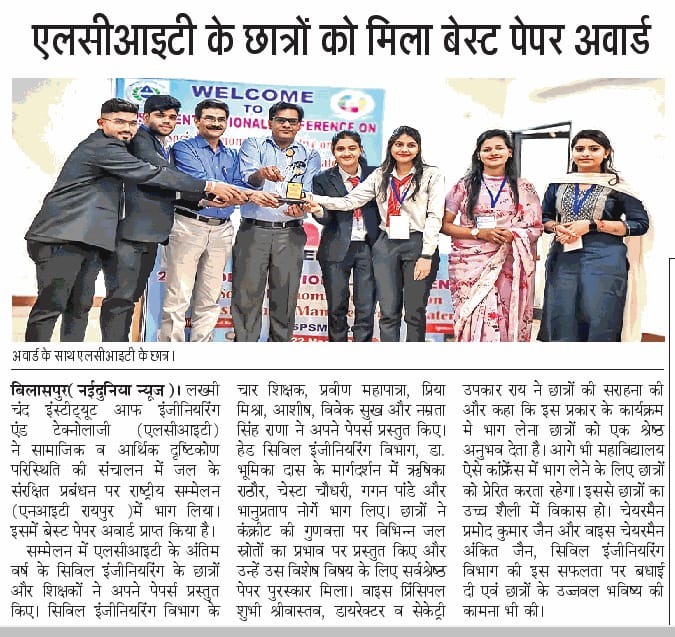
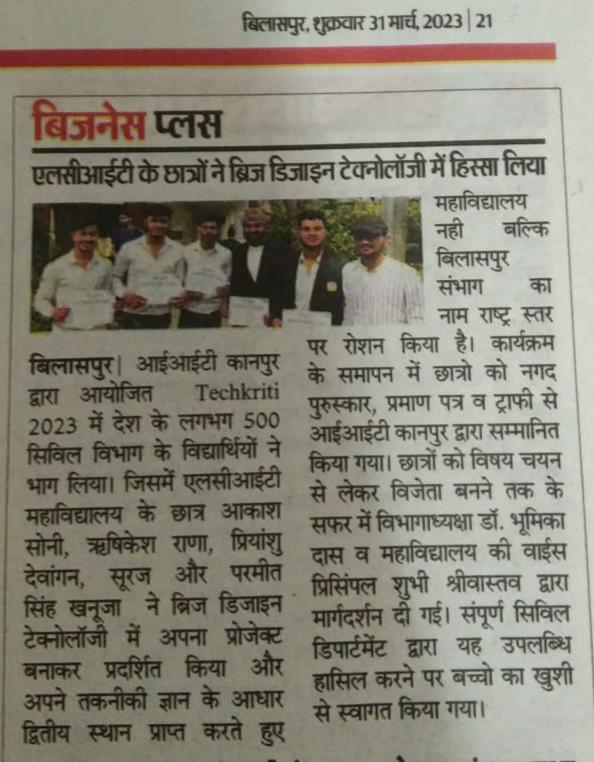
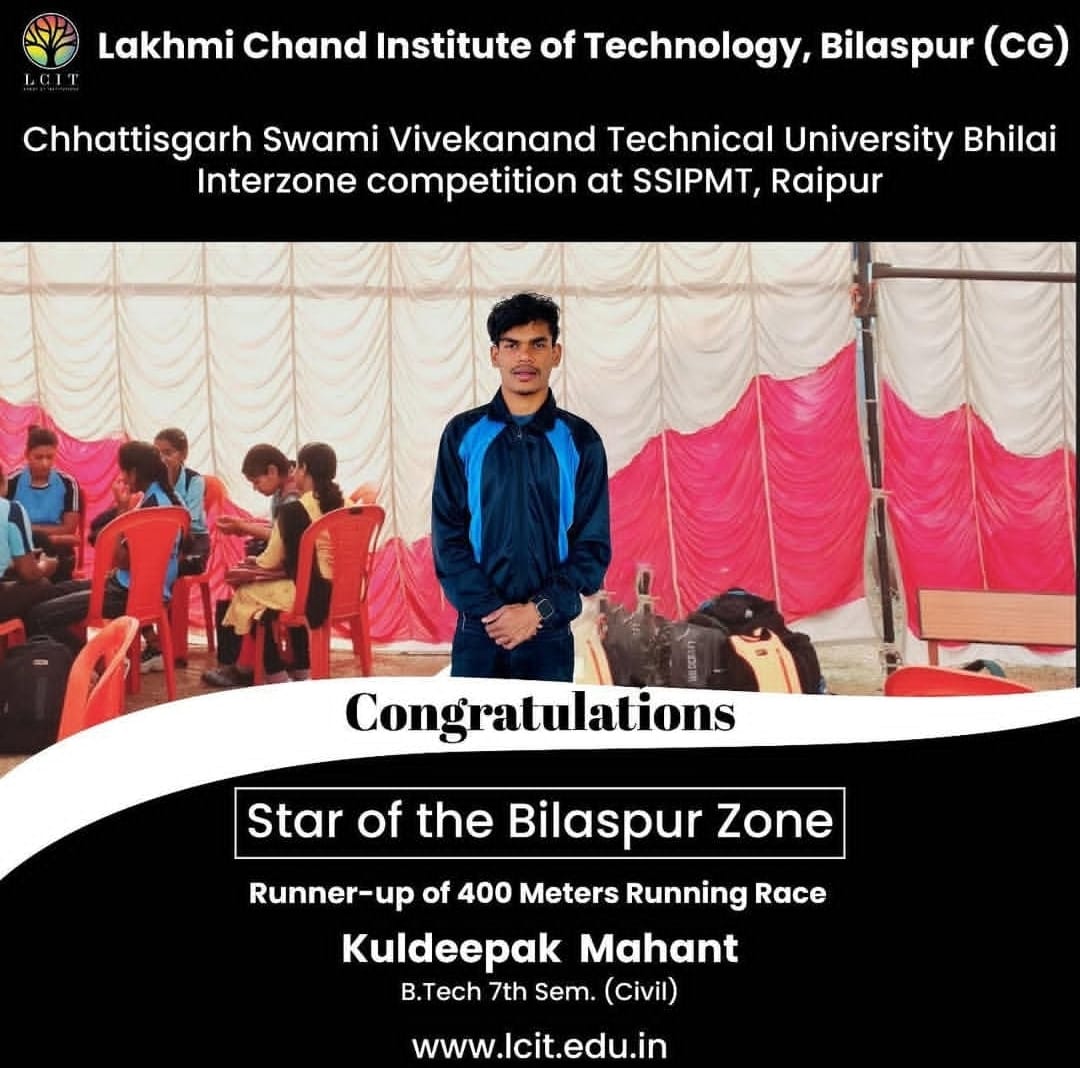
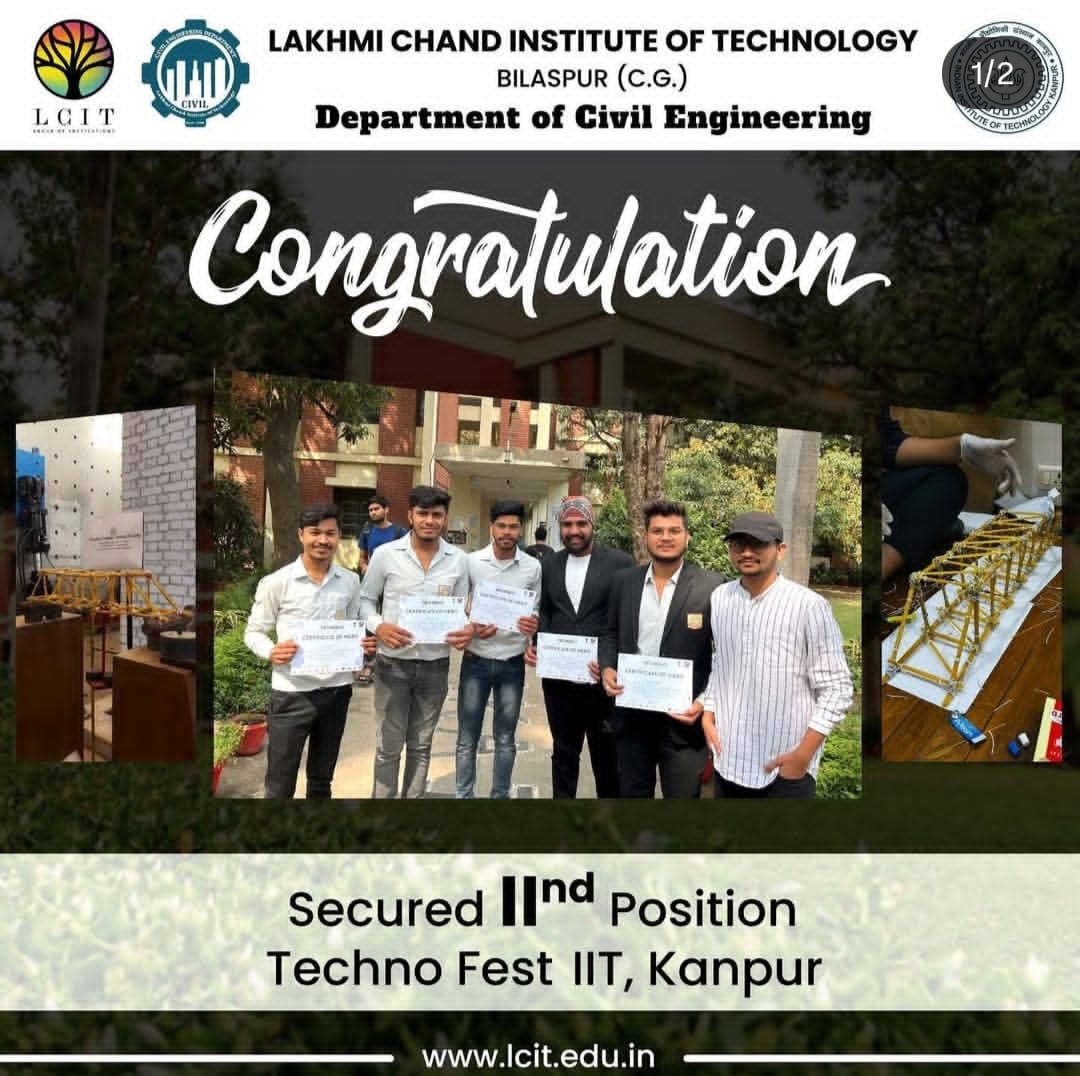
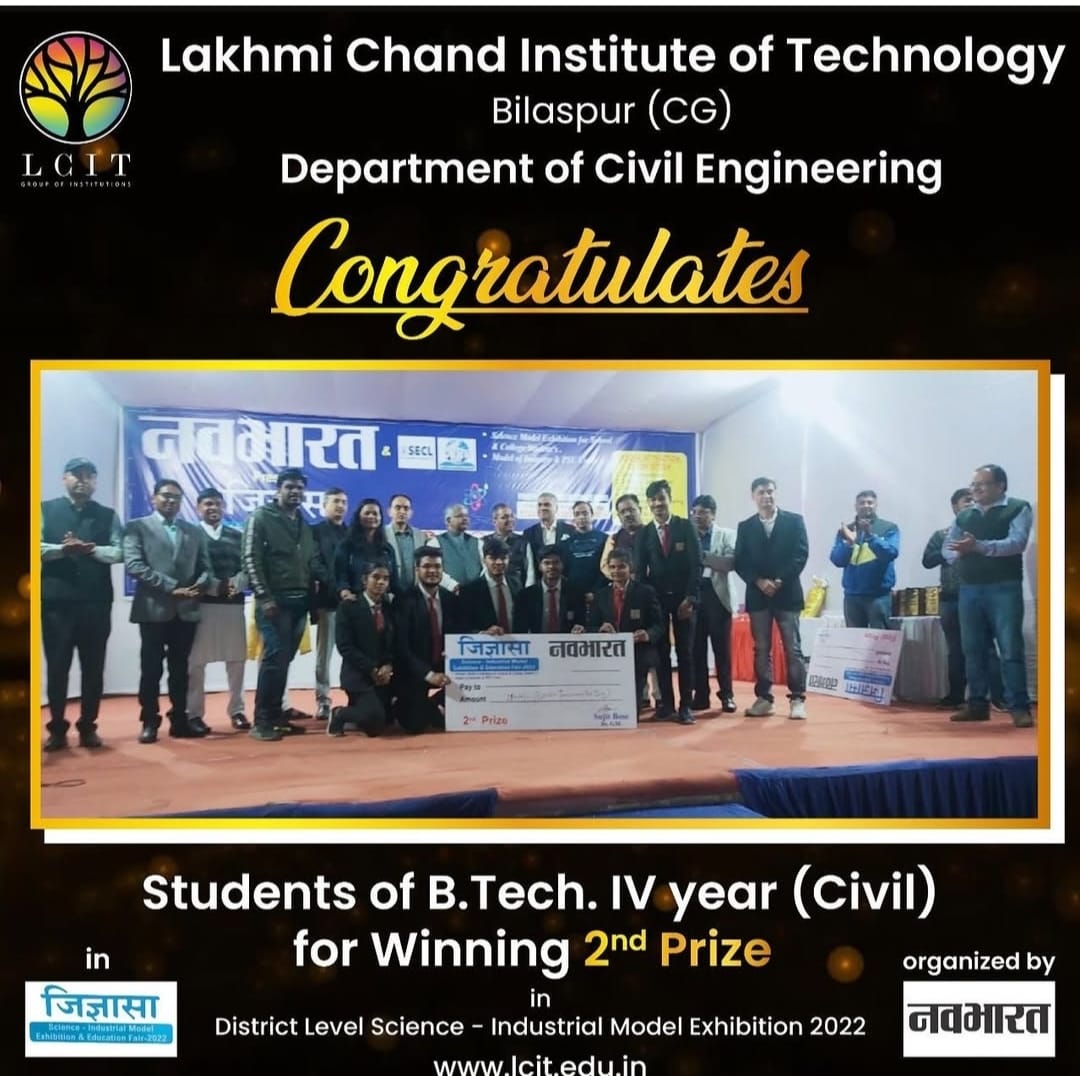
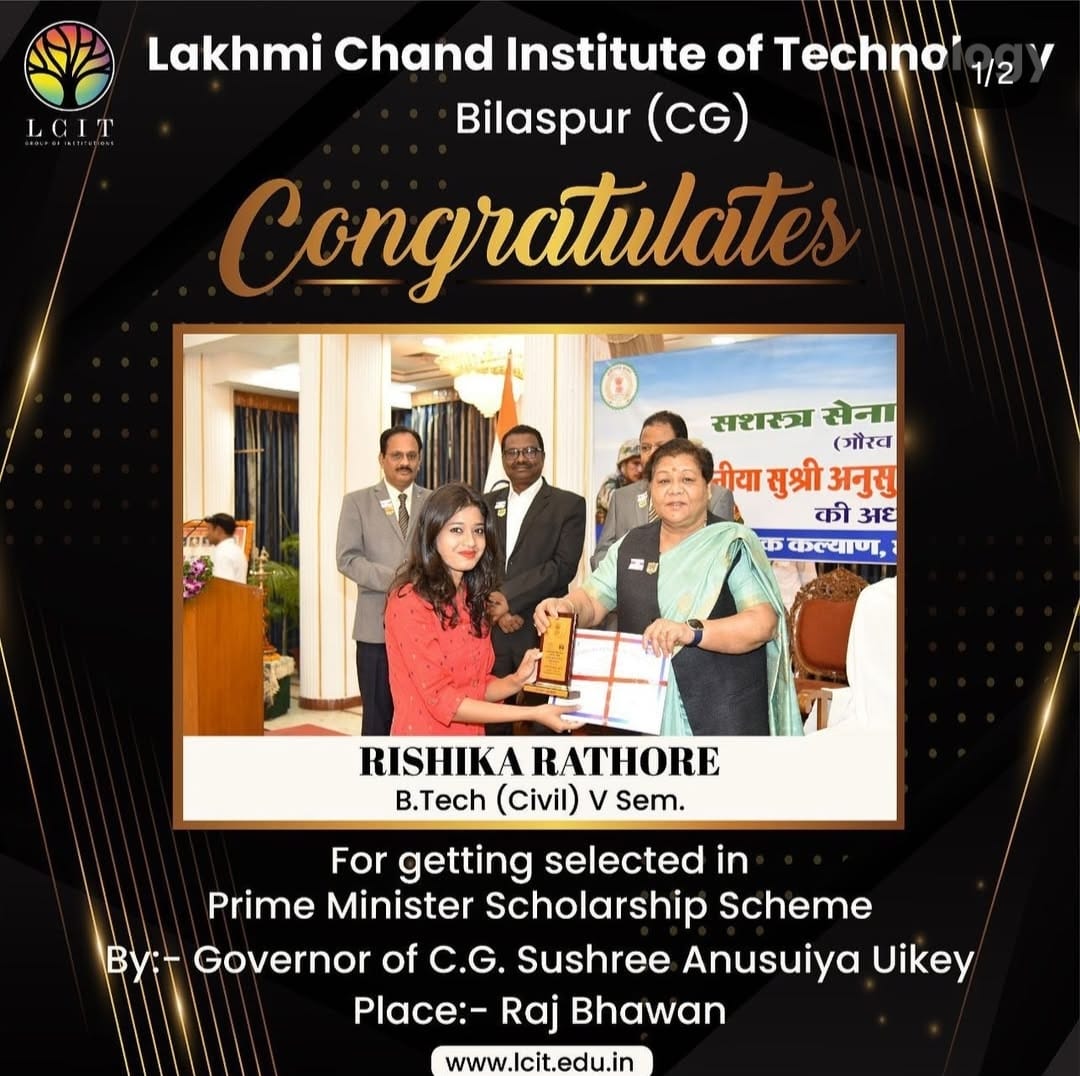
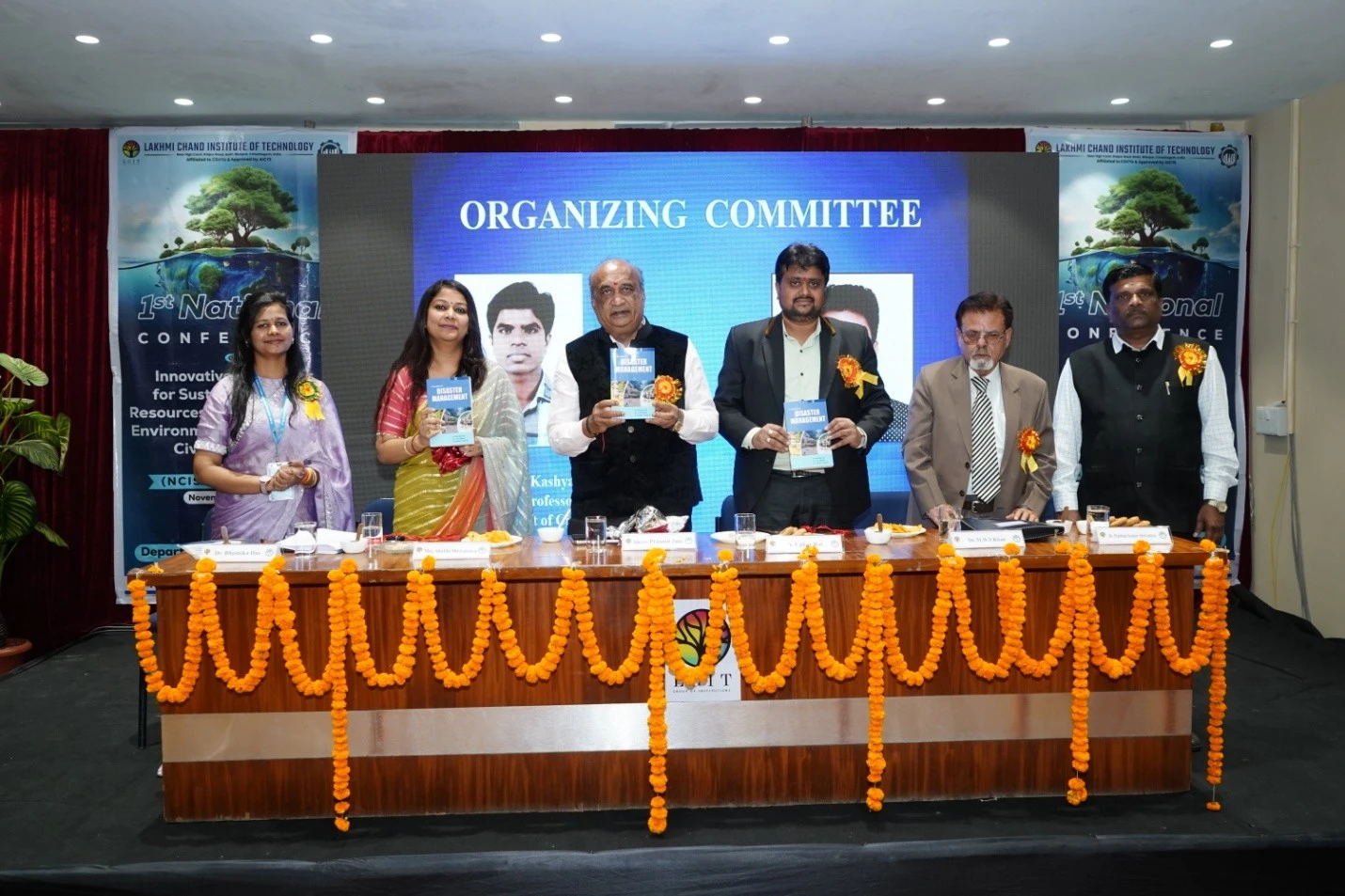
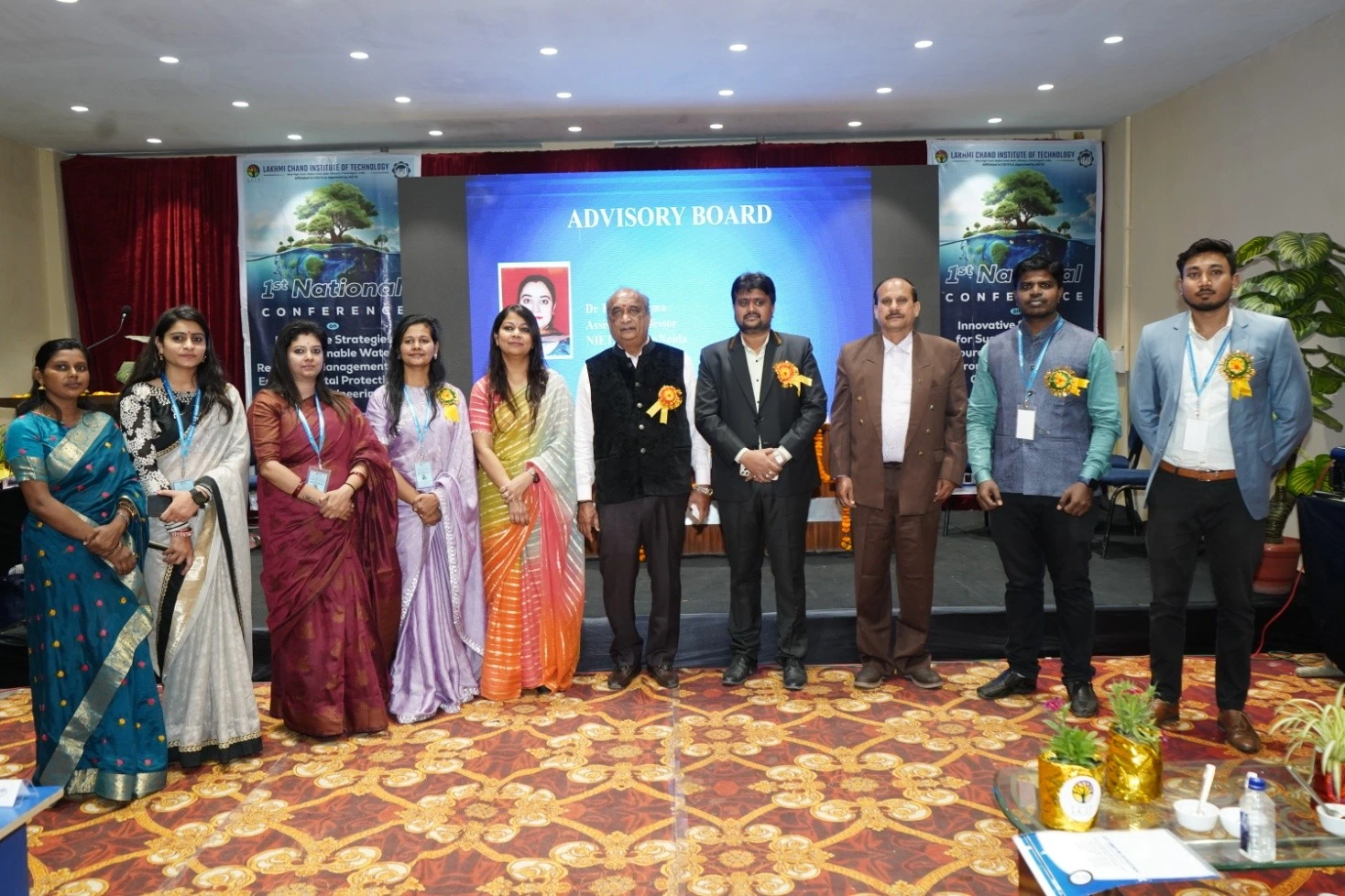
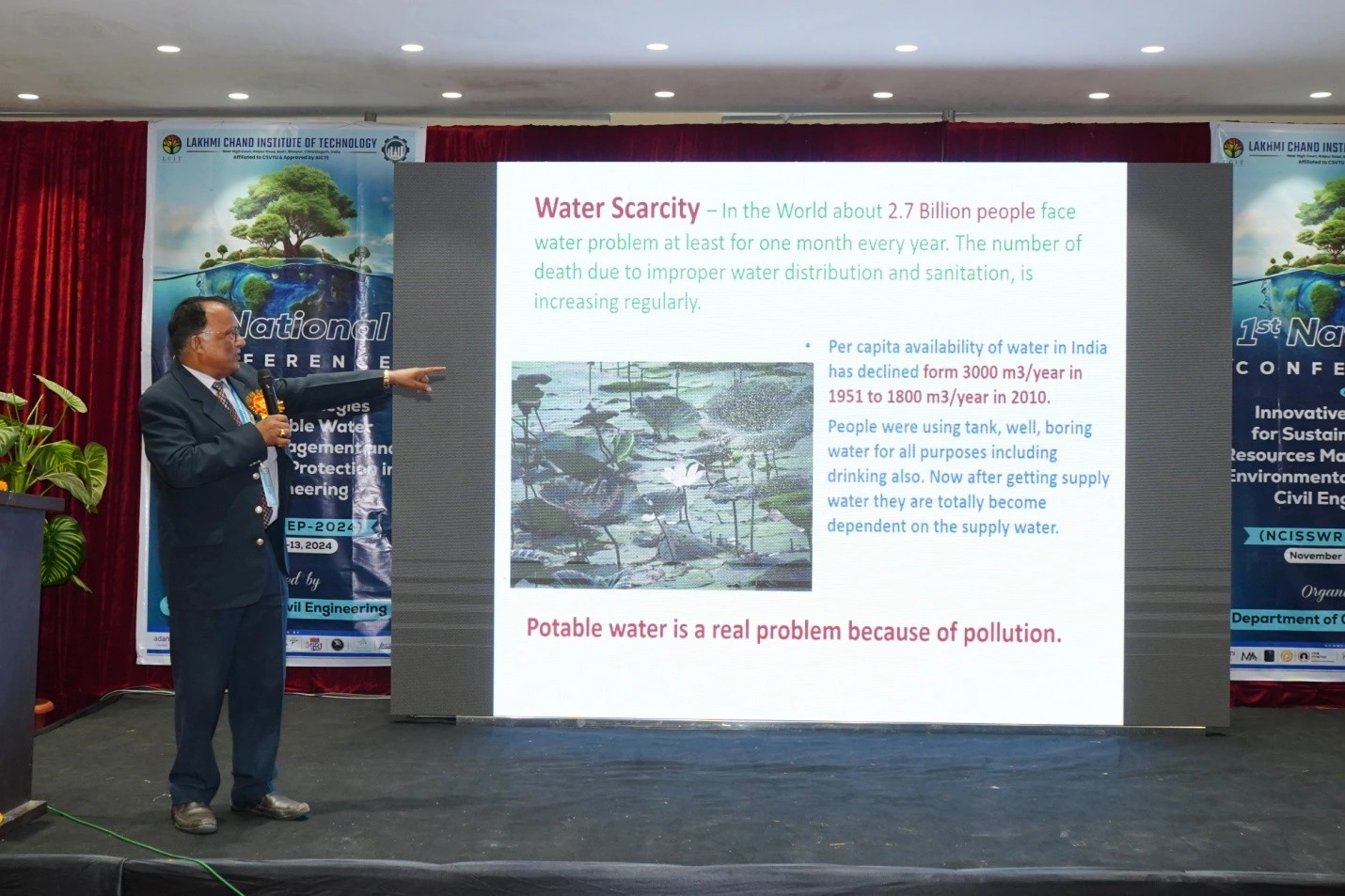
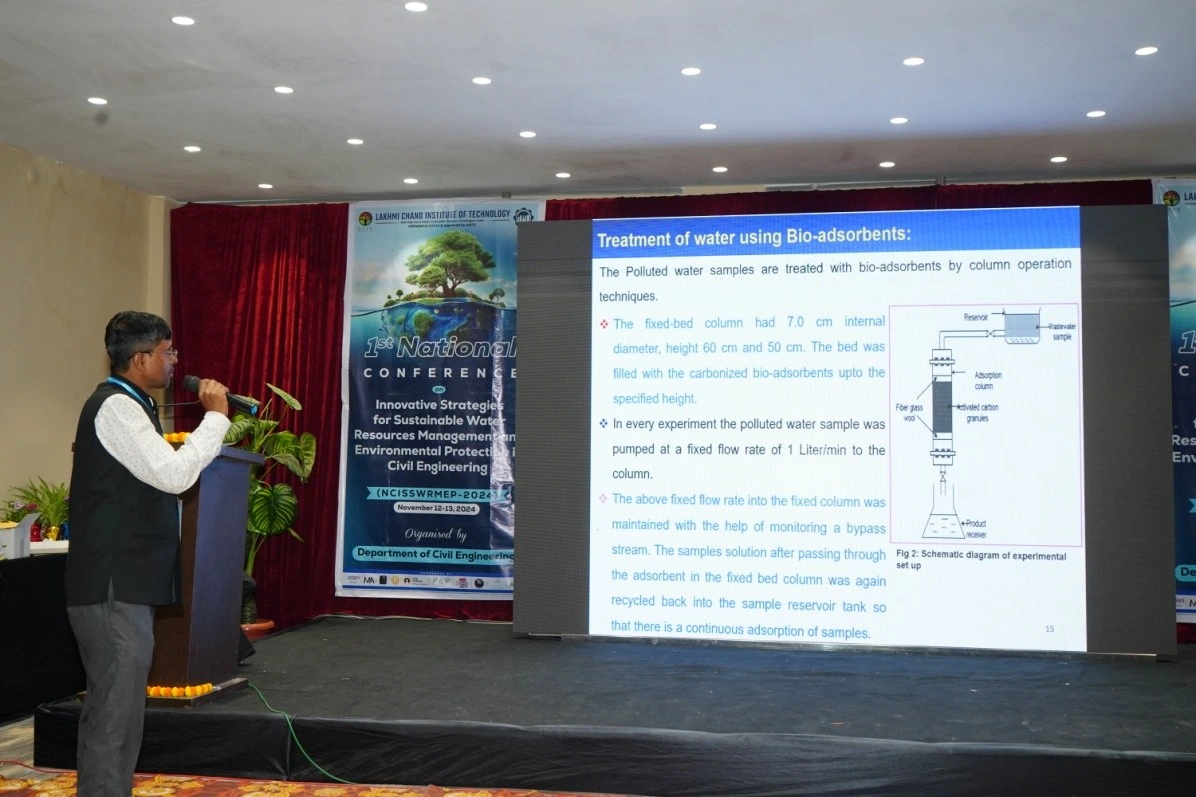
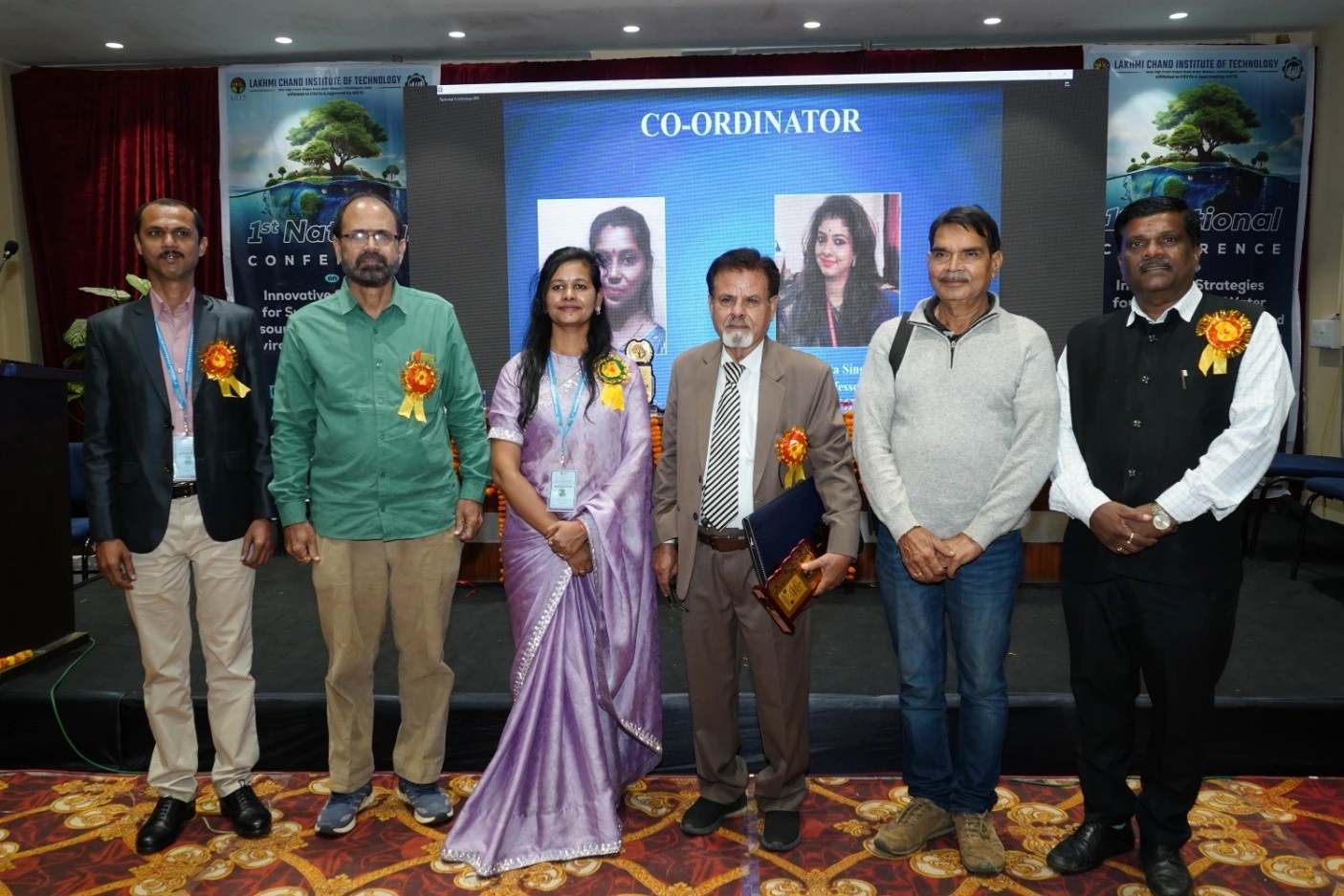
The Conference will serve as a platform for researchers, academicians, industry experts, and students to discuss and share ideas on innovative technologies, strategies, and practices that contribute to the effective management of water resources and the protection of our natural environment.
By focusing on interdisciplinary approaches and solutions, the event aims to inspire new directions for research and practical applications in civil engineering that address both current and future challenges.
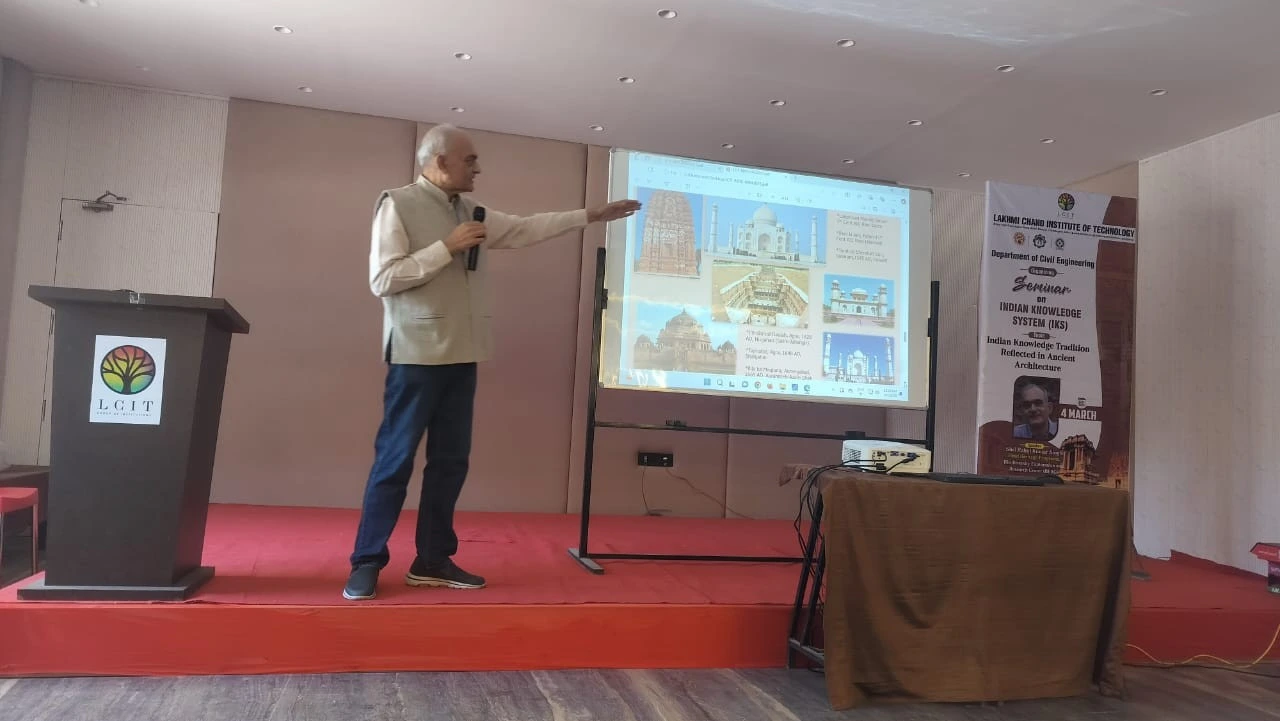
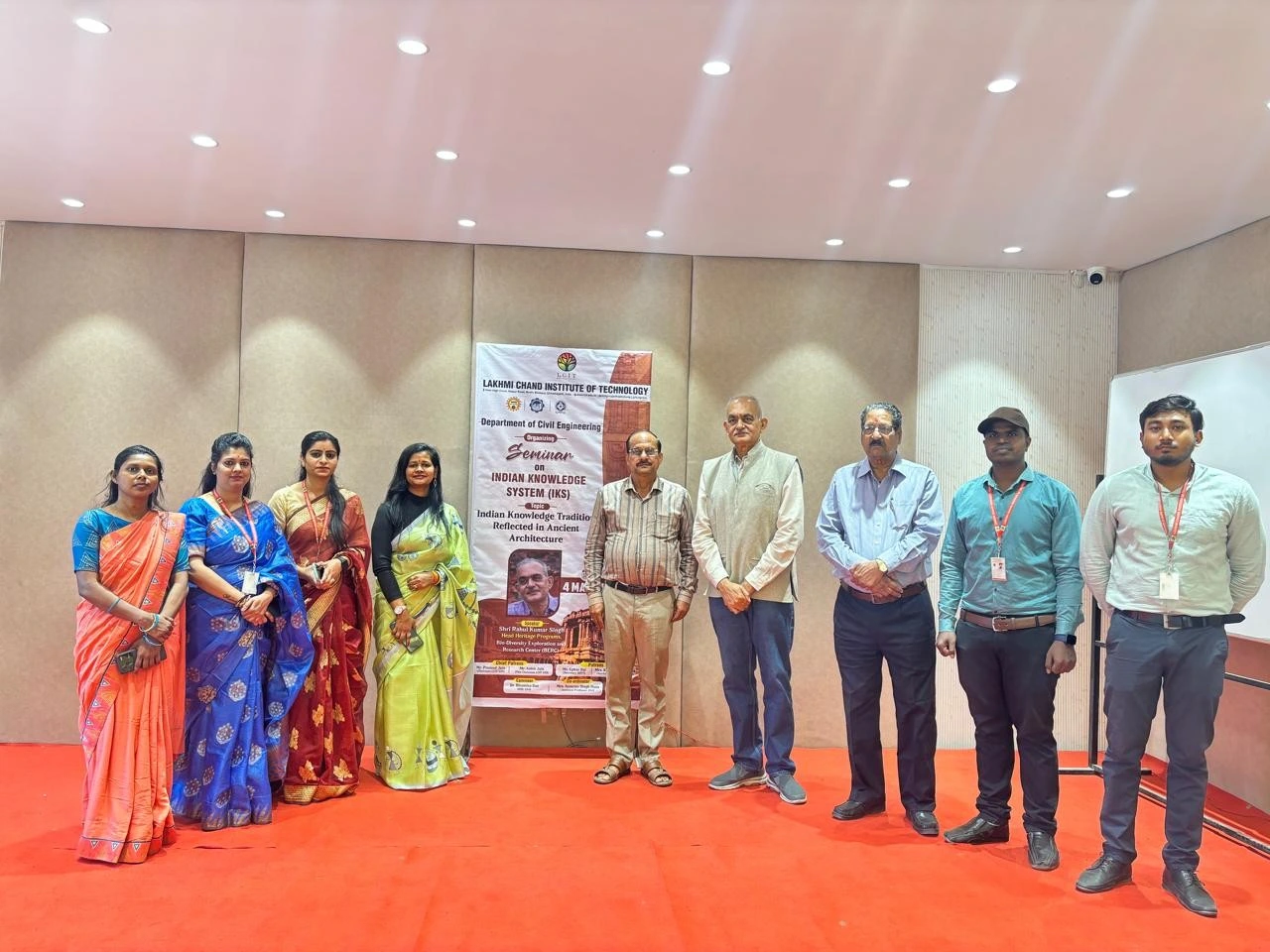
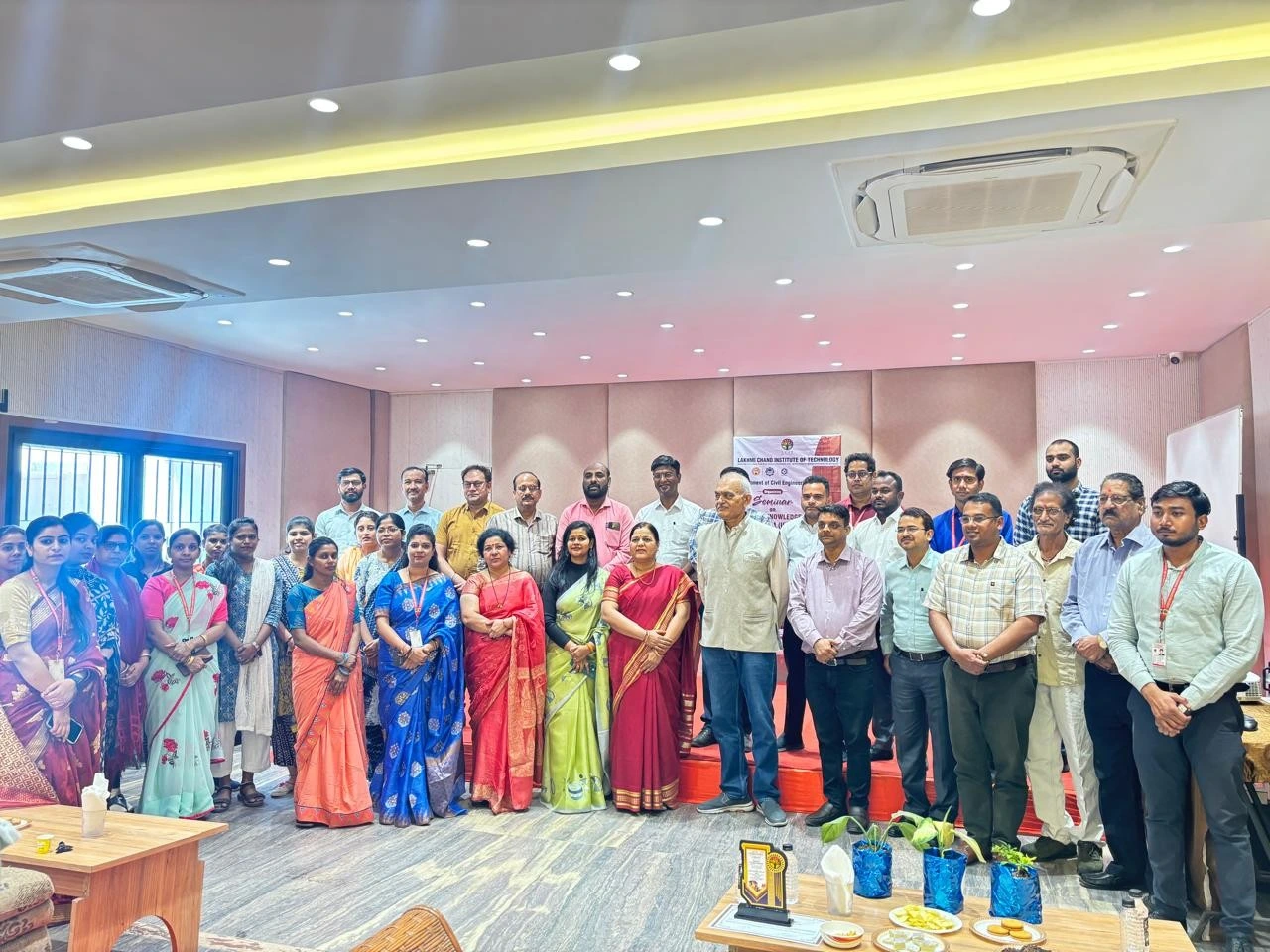
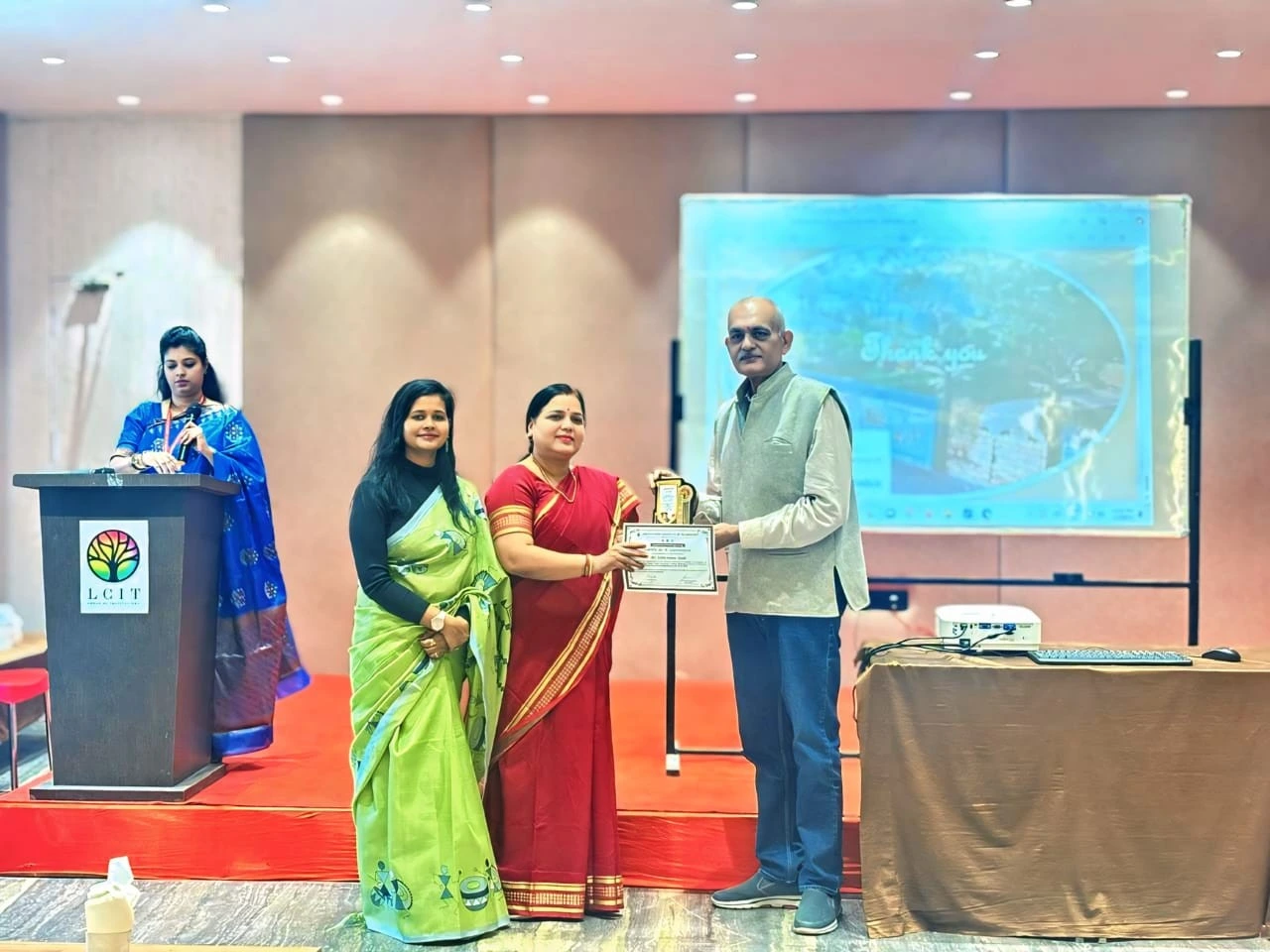
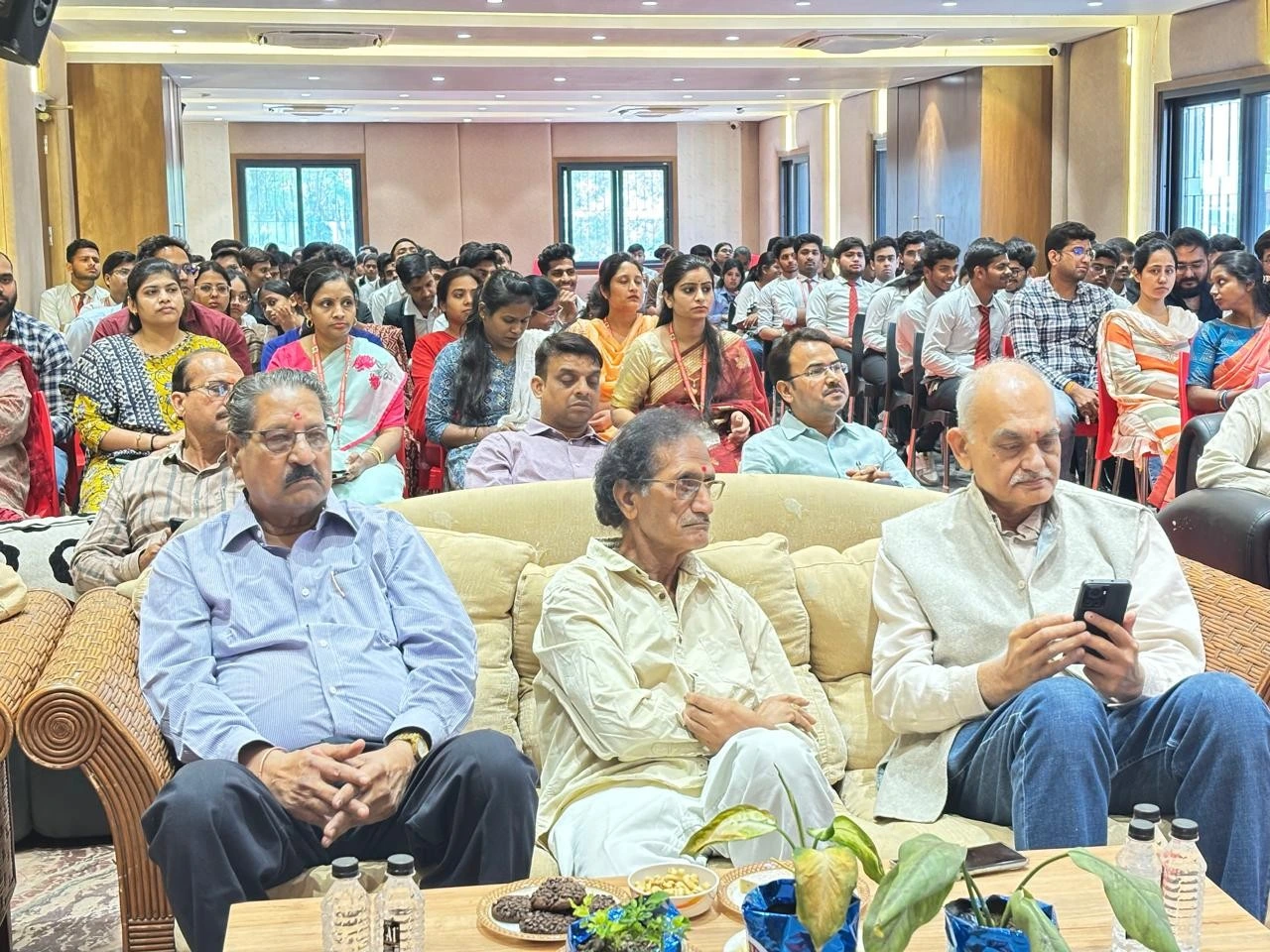
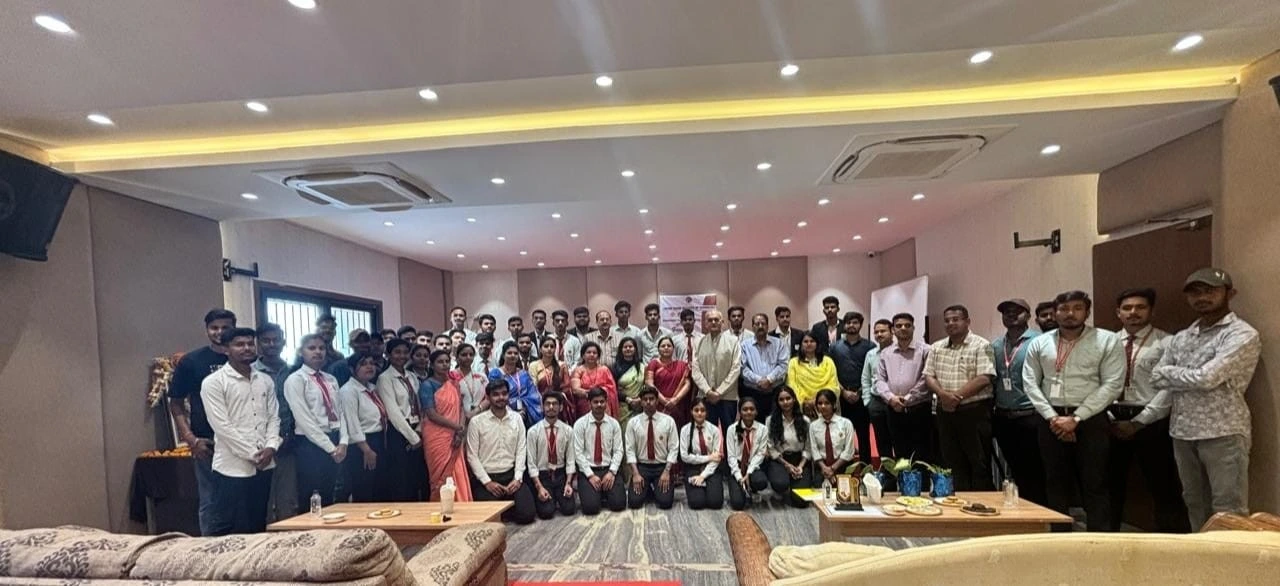
The main objective of organizing the National Seminar on Indian Knowledge System (IKS) is to investigate, rejuvenate, and advocate for the vast intellectual heritage, scientific knowledge, cultural practices, and philosophical principles of India's historical knowledge systems.
This seminar aims to create an active platform for academicians, researchers, policymakers, and practitioners to engage in substantial discussions, exchange research results, and promote interdisciplinary collaborations that incorporate IKS into contemporary education, science, and sustainable development initiatives.
Through this effort, the seminar hopes to connect traditional wisdom with modern requirements, ultimately aiding the comprehensive development of individuals and society.